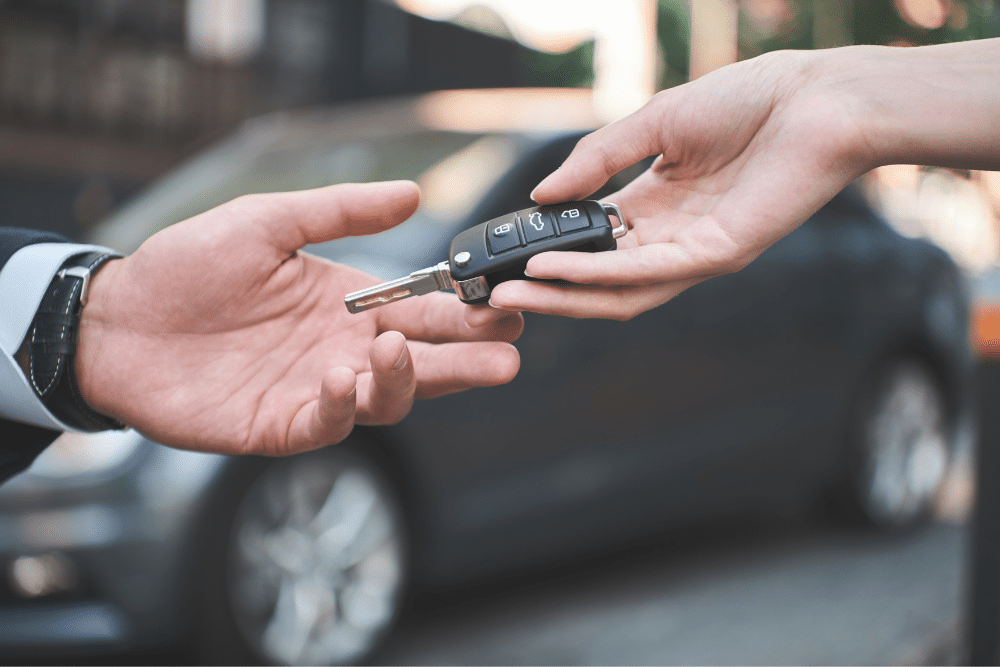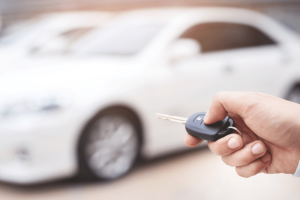
- The Savvy Promise
At Savvy, our mission is to empower you to make informed financial choices. While we maintain stringent editorial standards, this article may include mentions of products offered by our partners. Here’s how we generate income.
If you come across your ideal used car in a private sale or at a dealership, it’s important to know what to do if it has finance outstanding before you buy it. There are many steps you should take to ensure the situation is smoothed over cleanly with a resolution which suits everyone, which you can learn about right here in Savvy’s comprehensive guide to buying cars under finance.
Can I buy a car with outstanding finance?
Yes – you can buy a car with outstanding finance, but it isn’t always recommended due to the potential legal and financial complications which can arise from such a situation. When a car has outstanding finance, it means the previous owner has not fully paid off the loan or lease on the vehicle, so the lender still holds a legal interest in the car. This can potentially lead to the vehicle being repossessed if the appropriate debts aren’t paid.
When it comes to buying a car with existing finance, there are several options you can look at taking:
- Pay out the outstanding debt yourself after purchasing the car
- Organising a plan with the seller to pay off the debt prior to taking ownership of the car (which may be in instalments)
- Have the seller of the financed car pay off the loan prior to you taking ownership of it
It may also be worth checking with the lender themselves to gain an accurate picture of how much is left on the loan account.
What should I do before buying a car with outstanding finance?
Before buying a car, especially from a private seller, it's essential to take several steps to ensure that the vehicle doesn't have any outstanding finance:
- Vehicle history report: obtain a comprehensive vehicle history report to check for any recorded encumbrances, including outstanding finance.
- Ask the seller: ask the seller directly whether the car has any outstanding finance. Request supporting documents to verify their claims.
- Check the PPSR: conduct a search on the Personal Property Securities Register (PPSR) to determine if the car has a registered security interest, which can be arranged for free with certain providers.
- Inspect documents: carefully review the car's registration papers, service history and any relevant documents related to previous ownership.
- Get a mechanical inspection: having the vehicle inspected by an independent professional can help unearth any potential issues which are worth knowing about before you buy the car.
- Pay the lender directly: whenever possible, consider paying the lender directly to clear the outstanding finance before purchasing the car.
- Choose reputable dealers wherever possible: if buying from a dealer, choose a reputable and established dealership that conducts thorough checks on their vehicles and discloses encumbrances.
Who do I have to pay when buying a car with outstanding finance?
It’s important to know how different situations can lead to different payment arrangements before you fork out for your car:
- Paying with cash: if you’re buying your new car with cash, you’ll be able to settle any debts immediately with the lender and (if applicable) the vendor. As mentioned, you should pay the lender yourself wherever possible to ensure the seller opts not to and leaves you in the lurch.
- Paying with a new loan: in the event you’re using a loan yourself to purchase the car, the two lenders should be able to sort out the outstanding debt between themselves. This will ensure the first loan is paid out and you only have to manage a single set of repayments.
- If the loan amount is less than the purchase price: in situations where the amount you’re buying the car for is greater than the remaining loan debt, you’ll need to pay out the debt and transfer the remaining balance to the seller.
What happens if I buy a car with outstanding finance without knowing?
If you unknowingly purchase a car with outstanding finance, several issues can arise. Firstly, the lender retains legal ownership of the car until the debt is settled. This can result in an ownership dispute, as the seller might not have the authority to transfer ownership to you.
Additionally, the lender can repossess the vehicle if the previous owner defaults on payments, even if you've paid for it. In the worst-case scenario, you might become responsible for repaying the outstanding debt, leading to unexpected financial obligations. Legal complications could also arise if the debt remains unpaid.
To avoid these risks, it's crucial to conduct thorough research, obtain relevant reports and communicate openly with the seller. If you discover outstanding finance after purchase, promptly contact the seller and the lender to address the situation. Should you come across outstanding finance before you purchase the car which the seller either failed to disclose or denied was owed, they may be trying to scam or defraud you, in which case it’s wise to not go through with the sale.
Seeking legal advice may also be necessary to understand your rights and responsibilities. Overall, being vigilant and well-informed before purchasing a car can save you from potential headaches and financial troubles down the line.
Did you find this page helpful?
This guide provides general information and does not consider your individual needs, finances or objectives. We do not make any recommendation or suggestion about which product is best for you based on your specific situation and we do not compare all companies in the market, or all products offered by all companies. It’s always important to consider whether professional financial, legal or taxation advice is appropriate for you before choosing or purchasing a financial product.
The content on our website is produced by experts in the field of finance and reviewed as part of our editorial guidelines. We endeavour to keep all information across our site updated with accurate information.
Approval for car loans is always subject to our lender’s terms, conditions and qualification criteria. Lenders will undertake a credit check in line with responsible lending obligations to help determine whether you’re in a position to take on the loan you’re applying for.
The interest rate, comparison rate, fees and monthly repayments will depend on factors specific to your profile, such as your financial situation, as well others, such as the loan’s size and your chosen repayment term. Costs such as broker fees, redraw fees or early repayment fees, and cost savings such as fee waivers, aren’t included in the comparison rate but may influence the cost of the loan. Different terms, fees or other loan amounts may result in a different comparison rate.









